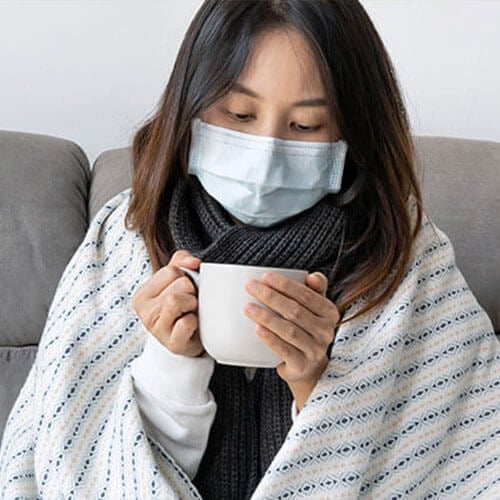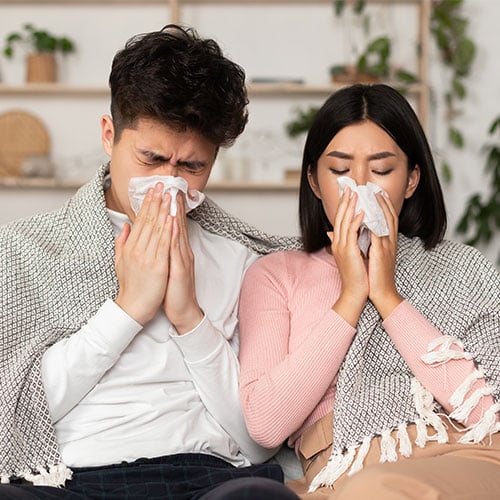Check If You Have These Cough and Cold Meds in Your Medicine Cabinet
It’s good to be prepared for unexpected bouts of cough or cold in your household. Learn more about cough and cold medicines available in pharmacies that you may have on stand-by in your medicine cabinets.
Why Are You Coughing?
Cough is a spontaneous reflex and defense mechanism that protects the airway and lungs against irritants. Coughing is a symptom of various respiratory diseases ranging from the usual common cough and cold (upper respiratory tract infections), to more serious diseases like asthma and pneumonia.
Types of Cough
Non-productive cough, also known as dry cough is cough without phlegm or mucus secretions. Many people describe it as a “tickling” or “scratchy” sensation. Allergies, flu and other respiratory infections may act as triggers to a non-productive cough
Productive Cough is often referred to as cough with phlegm or wet cough because a gurgling sound may be heard, brought about by mucus or other fluids. When there is an infection, the body produces more mucus than usual to help trap and expel the bacteria or virus causing the infection. Coughing gets rid of the excess mucus. Acute bronchitis, pneumonia and bronchiestasis are some of the causes of this type of cough.
What Cough Medicines Are Prescribed by Physicians
For Non-productive Cough
Cough suppressants are usually prescribed for non-productive cough to block the cough reflex.
An example of a cough suppressant is dextromethorphan HBr, and is usually administered in combination with a nasal decongestant and paracetamol.
For Productive Cough
Expectorants are meant to reduce the thickness of the mucus, loosening up the mucus and makes you cough up the phlegm easier. The most commonly available expectorant is guaifenesin.
Mucolytics help break up the mucus, thus making it easier to clear them from the airways.
What About for Colds?
If the problem is runny nose, alongside sneezing with itchy and watery eyes, seek the advice of your physician if antihistamines (anti-allergies) are suited for your condition.
Antihistamines help block a chemical called histamine that triggers swelling and itching within your nose.
On the other hand, if nasal congestion is a problem, inquire from your physician if Phenylephrine HCl, will be beneficial for your case. It can help patients breathe easier since it clears up obstructed nasal passages and sinuses.
If symptoms persist, consult your physician.
References:
https://wa.kaiserpermanente.org/kbase/topic.jhtml?docId=ug1887
https://www.healthline.com/health/green-phlegm
https://www.healthline.com/health/dry-cough
https://www.healthline.com/health/best-cold-medicine#fever-and-aches
https://www.medicalnewstoday.com/articles/cough-with-mucus
https://www.medicalnewstoday.com/articles/327442#treatment
https://www.nhs.uk/medicines/carbocisteine/
https://www.healthhub.sg/a-z/medications/18/Ambroxol-Tablets
https://www.medicinesforchildren.org.uk/medicines/chlorphenamine-maleate-for-allergy/
https://www.everydayhealth.com/cold-flu/right-cold-medication-for-your-symptoms.aspx
https://www.webmd.com/cold-and-flu/otc-cold-medicines
https://www.webmd.com/cold-and-flu/cold-guide/decongestants-antihistamines-cold#1
https://www.cdc.gov/antibiotic-use/colds.html
https://www.healthline.com/health/wet-cough#causes
https://www.healthhub.sg/a-z/medications/390/Mucolytics-and-Expectorants#1
https://www.medicalnewstoday.com/articles/expectorants#medicinal-expectorants




